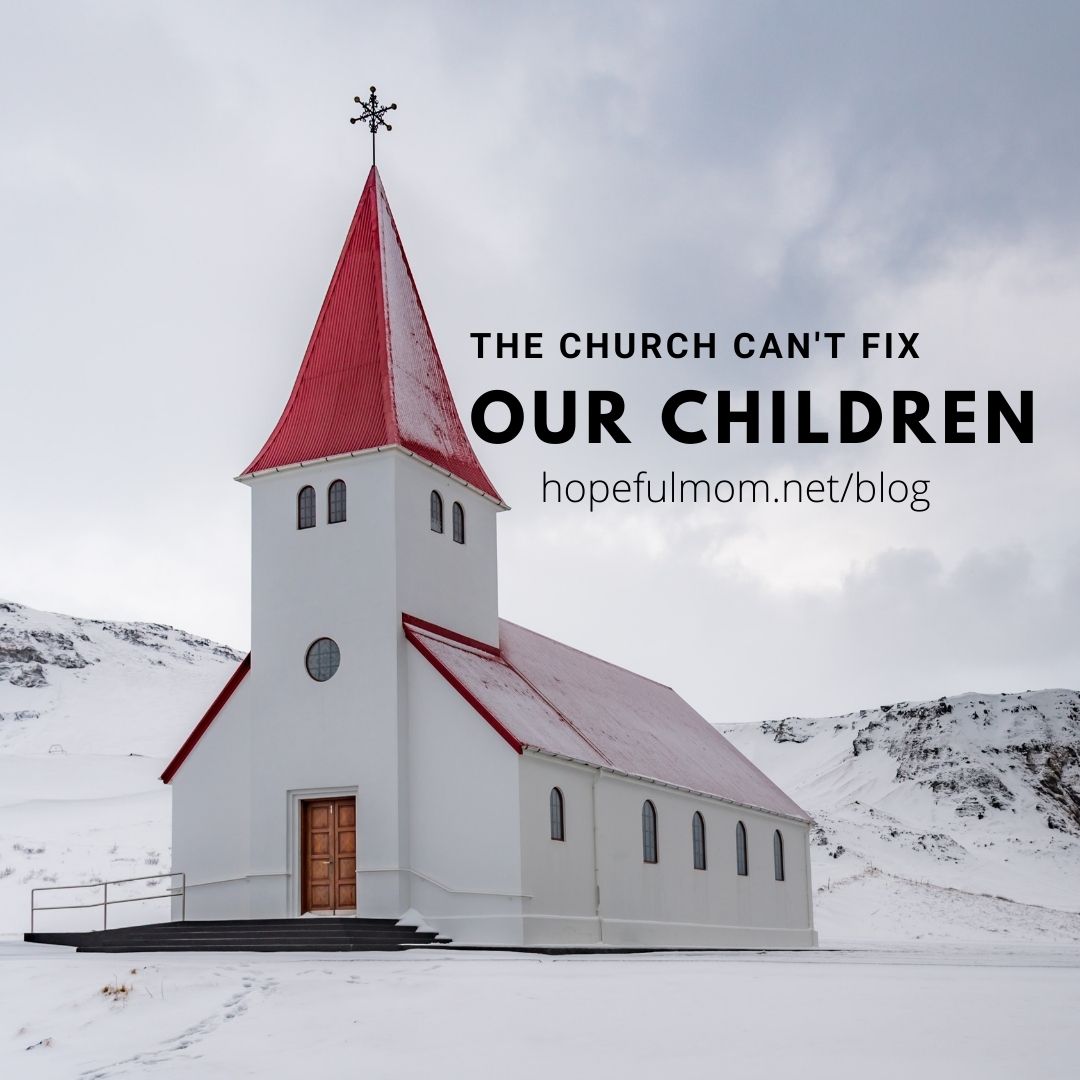I recently heard someone say, “Send your child to church. They will quit misbehaving. The youth group leaders will teach them right from wrong.” I wanted to spit out my drink–even though I wasn’t drinking at the time. I managed to swallow my, “Yeah, right!” sarcastic response. But my next thought was: The church can’t fix our children.
There is an idea within some circles that the church will teach our children everything they need to know about life. I’m not sure where the idea came from, but it seems like parents send their kids to school to learn academics and to church or Sunday school to learn morals/religion. When the child doesn’t live up to the parent’s standards, the school or church is blamed, as if they aren’t doing their job properly.
Parents Have the Strongest Influence
Don’t misunderstand me. Our schools are crucial. Our churches are vital. They typically play an extensive part in our children’s upbringing. Even those of us who home school usually have a community of people we turn to for support. Like the African proverb says, “It takes a village to raise a child.” But the primary responsibility of our children’s upbringing lies with the parents. If our children are having problems, the church can’t fix them.
I firmly believe parents have the strongest influence on our children, which is a mixed blessing. Parenting is a fantastic charge filled with adventure and excitement. It’s also a scary endeavor full of heartache and grief. The thought that my decisions could make or break my child is enough to paralyze me at times. But I also embrace the quest to help build their character and motivate them toward their goals. My heart is full when I see an ah-ha moment in their lives or read joy in their face as they complete a task. I celebrate when I hear them laughing together or when one says “I’m sorry” to a sibling. I tuck these moments away in my memory and recall them on days when I feel like a failure. These memories motivate me to keep going.
In the context of the widespread pornography issue, the parent (or parent figure) has the greatest responsibility toward their child. But don’t let that overwhelm you. Parenting isn’t a quick task. It’s a lengthy undertaking. So we have time. And, the truth is, we can’t raise our children alone. That’s not a hypocritical statement. We all need people and communities. Even schools (or a home school community). Even churches.
Churches Aren’t One-Size-Fits-All
But not every school is the same. Churches aren’t one-size-fits-all. Youth groups aren’t cookie cutter groups. I know. I’m a pastor’s wife. I have some experience in this area. I’ve been part of a handful of churches, and each had their own unique features. Each had advantages and disadvantages. Each had beneficial areas and detrimental areas. Each had thriving groups and dying groups. Each had people! And people are unpredictable. Therefore, I don’t think we can say, “The church will fix your child.” The church can’t fix them.
However, the people within the church can have a positive impact on your child. I’m a testament to that fact.
Late one evening, seventeen months after my son’s first confession, he knocked on our bedroom door. “Mom, Dad, can I talk to you a minute?” Words no parent wants to hear at bedtime.
“Remember that thing we talked about before? Well, I never really stopped.” What!?
“Tonight, at youth group, the leader talked with the guys about pornography and how bad it is. He explained how it can hurt your marriage and family. I need to tell you, I’ve been getting up after you go to bed and getting my phone off the counter and looking at porn.” I sat still willing myself not to interrupt.
“I see now I need to quit for good so it doesn’t ruin my future. Please take the social media apps off my phone and keep the phone somewhere else at night.”
I am so grateful for this youth group leader and his heart for teens. He chose to be authentic and speak openly about the dangers of pornography. He gave those teens a glimpse of his past for the purpose of shaping their future. I’m grateful he continued his relationship with my son and became one of his accountability partners.
So, while I don’t believe the schools or the church can fix your child (no matter what the issue), they can have a positive influence. But we can’t assume they will address all topics. We can’t assume they will teach our children right from wrong in every aspect of life. That’s our job.
Foster Relationships with Your Children
Parenting is a tough gig. It can be uncomfortable, time-consuming, and downright hard. But I encourage you to persevere. My son’s youth group leader had a powerful impact on him, but he would not have come to us had we not laid a foundation of trust and understanding. Even though he was scared to confess, he believed, based on our established relationship, we would do our best to help him, not condemn him. He knew our love was unconditional. (Still is!)
It’s never too late to foster a loving, caring, understanding relationship with your child. If you still haven’t figured out how to start a dialogue with your child, you could begin by saying, “One of the things I’ve learned recently is that pornography is prevalent in our society. Lots of youth are accidentally stumbling on it. I’d like to talk with you about it. When would be a good time for us to do have a conversation?”

Schedule an appointment so your child has some time to mentally prepare. During the conversation, ask questions to give them an opportunity to explain what they’ve seen or how they’re feeling. If your child is young and you are unsure if they have been exposed to porn, you could ask, “Have you heard the word pornography? What do you know about it?” and go from there. If it’s an older child, you could ask, “Have you ever stumbled onto porn by accident or purposefully sought it?” Again, their answer will direct the discussion.
If you know your child has been exposed to porn and possibly has a problem, it may be helpful to tell them, “I know this is difficult. I want to get better at talking about it so it becomes more comfortable. Can you tell me how you are doing in this area?” Give space for the awkward silences and weird pauses. Reassure your child you love them and want to understand and help.
The goal is to build a bond with your child through regular, ongoing conversations. It gets easier as you go along. Believe in yourself and in your relationship with your child. You can do it!
What do you think the role of the church is?
Can you share a time you had a hard conversation and felt victorious? How about a conversation that did not end so well? We’d love to hear your thoughts.
Remember to subscribe for updates to receive a FREE gift and read Sexpectations for more conversation starters and cultivating a healthy relationship. Share this post on social media. Word of mouth is the best way to educate others on the effects of pornography. Thank you!
About the author
For more about Barb, visit the About page. For information on Barb's book, Sexpectations: Helping the Next Generation Navigate Healthy Relationships, visit the Book page.




One Reply to “The Church Can’t Fix Our Children”